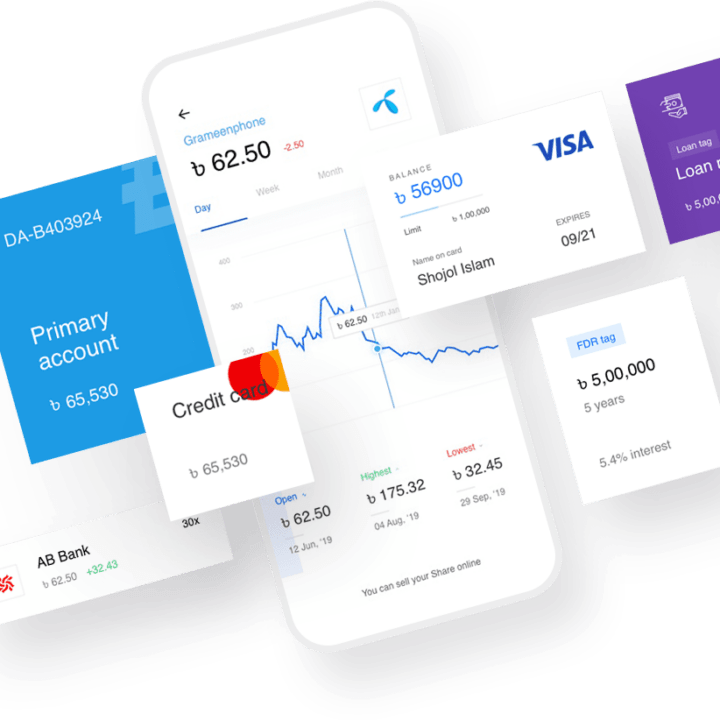Database Integration: Making Your Website Dynamic and Interactive
Database Integration: Making Your Website Dynamic and Interactive
If your website is little more than a static brochure, it’s not reaching its potential. Today’s business websites need to be dynamic and interactive—making updates automatically, pulling in real-time content, and storing customer data safely. This is where database integration comes in. Whether you’re working with a digital agency or using a modern website builder, understanding how databases work with websites is essential for long-term business growth.
In this guide, we’ll explain the role of databases in business websites, explore different types of databases, cover real-world applications, and show how integration fuels better user experiences, stronger engagement, and improved sales.
What is Database Integration?
Database integration is the process of connecting your website to a database, allowing it to store, retrieve, and update information dynamically. Instead of serving the same set of pages to every visitor, database-powered websites personalize content, manage user interactions, and scale to handle thousands—or millions—of records.
A static HTML site is a book. A database-driven website is a library where information is updated in real time.
Why Database Integration Matters for Businesses
- Dynamic Content: Display new listings, products, or blog posts instantly from your database.
- Customer Management: Store leads, registrations, and orders for ongoing engagement.
- Personalization: Show different users unique recommendations or dashboards.
- Scalability: Handle growth without rebuilding static pages.
- Automation: Sync with APIs, CRMs, and marketing tools to streamline workflows.
Types of Databases Commonly Used
Relational Databases
Examples: MySQL, PostgreSQL, Microsoft SQL Server. Store information in structured tables with relationships. Great for e-commerce, financial data, and structured business processes.
NoSQL Databases
Examples: MongoDB, Cassandra, Firebase. Flexible, scalable, ideal for unstructured data or apps requiring rapid growth (social media comments, chat logs).
Cloud Databases
Examples: AWS RDS, Google Cloud SQL, Azure Cosmos DB. Hosted in the cloud, offering scalability and high availability without needing your own servers.
How Business Websites Use Databases
- E-Commerce: Product data, inventory, customer accounts.
- Membership Sites: Profiles, logins, preferences.
- Booking Systems: Reservations, timeslots, confirmations.
- Content Management: Blogs & news sections powered by CMS.
- Analytics: Track and store user activity.
Database Integration with Website Builders
Most website builders abstract away database complexity. For example, when you create a product in Pixel Cloud Media’s editor, it is stored in a structured database, even if you never see it. For advanced needs, professional digital agencies can create custom database integrations—CRM syncing, customer dashboards, ERP connections.
Database-Driven User Experiences
Databases give life to the most engaging online experiences:
- ✅ Personalized greetings for returning customers (“Welcome back, Sarah!”).
- ✅ Real-time search results as you type.
- ✅ Automatic filtering of inventory (“Show me size M shirts only”).
- ✅ Storing purchase history for one-click reorders.
- ✅ Subscription billing and customer portals.
Security Considerations
With great power comes great responsibility. Databases store sensitive information—names, passwords, payments—so they must be protected against:
- SQL Injection: A hacker trick that can manipulate stored queries.
- Data Breaches: Encrypted storage and strong authentication are essential.
- Backups: Always maintain regular, offsite backups.
- Compliance: GDPR, PCI DSS, and HIPAA regulations may apply.
Case Studies
Case 1: The Retail Store Adding a Database
A clothing retailer using static pages struggled with updating thousands of products. Switching to a relational database turned editing each page into managing one dashboard. Updates that took days now happened in minutes.
Case 2: The Restaurant Booking Upgrade
A neighborhood restaurant added a booking system integrated with their website. Reservations updated automatically in the database, preventing double-bookings. Customer satisfaction—and repeat bookings—improved instantly.
Steps to Integrate a Database Into Your Website
- Analyze Requirements: Define what type of data you need stored (customers, products, content).
- Pick a Database Type: Relational or NoSQL depending on structure needs.
- Choose Hosting: Cloud-based or on-premise.
- Implement Integration: Use APIs, middleware, or platform-native setups.
- Secure & Monitor: Encrypt data, monitor queries, and set up alerts.
Database Integration FAQs
Does every business website need a database?
No. Simple brochure sites may not. But if you need forms, accounts, or product listings, databases are essential.
Can I integrate a database without coding?
Yes, many website builders with no coding required, like PixelCloud, handle it behind the scenes. For custom setups, a digital agency can help.
How do databases help SEO?
Databases allow you to keep content fresh (blogs, listings), which search engines love.
Is database integration expensive?
Not always—basic integration comes built into CMS systems. Custom integrations depend on complexity.
What happens if my database goes down?
Your site may lose dynamic functionality. Backups, redundancy, and cloud hosting minimize this risk.
Conclusion
Database integration elevates websites from static to dynamic. It enables live interaction, personalized experiences, and automation that saves time and fuels business growth. Whether you create a website in 1 hour with a builder or commission a bespoke solution through a digital agency, a database is the foundation for scaling.
Want to future-proof your business website? Start building with Pixel Cloud Media’s Website Builder and explore custom web agency services for advanced integration. Bring your site to life today.





